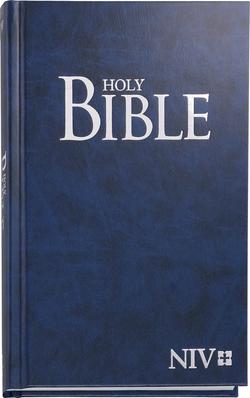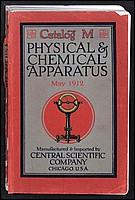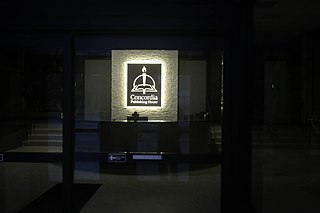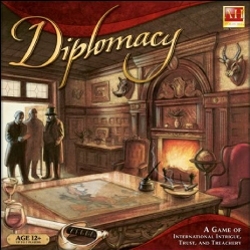
The New International Version (NIV) is a translation of the Bible into contemporary English. Published by Biblica, the complete NIV was released in 1978 with a minor revision in 1984 and a major revision in 2011. The NIV relies on recently-published critical editions of the original Hebrew, Aramaic, and Greek texts.

The Order of Canada is a Canadian state order and the second-highest honour for merit in the system of orders, decorations, and medals of Canada, after the Order of Merit.

Sears Canada Inc. was a publicly-traded Canadian company affiliated with the American-based Sears department store chain. In operation from 1952 until January 14, 2018, and headquartered in Toronto, Ontario, the company began as Simpsons-Sears—a joint venture between the Canadian Simpsons department store chain and the American Sears chain—which operated a national mail order business and co-branded Simpsons-Sears stores modelled after those of Sears in the U.S. After the Hudson's Bay Company purchased Simpsons in 1978, the joint venture was dismantled and Hudson's Bay sold its shares in the joint venture to Sears; with Sears now fully owning the company, it was renamed Sears Canada Inc. in 1984. In 1999, Sears Canada acquired the remaining assets and locations of the historic Canadian chain Eaton's. From 2014, Sears Holdings owned a 10% share in the company. ESL Investments was the largest shareholder of Sears Canada.

The T. Eaton Company Limited, later known as Eaton's and then Eaton, was a Canadian department store chain that was once the largest in the country. It was founded in 1869 in Toronto by Timothy Eaton, an immigrant from what is now Northern Ireland. Eaton's grew to become a retail and social institution in Canada, with stores across the country, buying-offices around the globe, and a mail-order catalog that was found in the homes of most Canadians. A changing economic and retail environment in the late twentieth century, along with mismanagement, culminated in the chain's bankruptcy in 1999.

Reader's Digest is an American general-interest family magazine, published ten times a year. Formerly based in Chappaqua, New York, it is now headquartered in midtown Manhattan. The magazine was founded in 1922 by DeWitt Wallace and his wife Lila Bell Wallace. For many years, Reader's Digest was the best-selling consumer magazine in the United States; it lost the distinction in 2009 to Better Homes and Gardens. According to Media Mark Research (2006), Reader's Digest reached more readers with household incomes of over $100,000 than Fortune, The Wall Street Journal, Business Week, and Inc. combined.

The British and Foreign Bible Society, often known in England and Wales as simply the Bible Society, is a non-denominational Christian Bible society with charity status whose purpose is to make the Bible available throughout the world.

The Living Bible is a personal paraphrase, not a translation, of the Bible in English by Kenneth N. Taylor and first published in 1971. Taylor used the American Standard Version of 1901 as his base text.
Early Modern English Bible translations are those translations of the Bible which were made between about 1500 and 1800, the period of Early Modern English. This was the first major period of Bible translation into the English language including the King James Version and Douai Bibles. The Reformation and Counter-Reformation led to the need for Bibles in the vernacular with competing groups each producing their own versions.
Crave is a Canadian premium television network and streaming service owned by the Bell Media subsidiary of BCE Inc.

Mail order is the buying of goods or services by mail delivery. The buyer places an order for the desired products with the merchant through some remote methods such as:
Les Humanoïdes Associés is a French-American publishing house specializing in comics and graphic novels, founded in December 1974 by comic artists Mœbius, Jean-Pierre Dionnet, Philippe Druillet, and financial director Bernard Farkas.

Softdisk, originally Softdisk Magazette, was a disk magazine for the Apple II computer line, published from 1981 through 1995. It was the first publication of the company that was also known as Softdisk, which would go on to publish disk magazines for other systems, other software, and later be involved in Internet access, hosting, and development.

Concordia Publishing House (CPH), founded in 1869, is the official publishing arm of the Lutheran Church–Missouri Synod (LCMS). Headquartered in St Louis, Missouri, at 3558 S. Jefferson Avenue, CPH publishes the synod's official monthly magazine, The Lutheran Witness, and the synod's hymnals, including The Lutheran Hymnal (1941), Lutheran Worship (1982), and Lutheran Service Book (2006). It publishes a wide range of resources for churches, schools, and homes and is the publisher of the world's most widely circulated daily devotional resource, Portals of Prayer. Its children's books, known as Arch Books, have been published in millions of copies. Concordia Publishing House is the oldest publishing company west of the Mississippi River and the world's largest distinctly Lutheran publishing house.
A catalog merchant is a form of retailing. The typical merchant sells a wide variety of household and personal products, with many emphasizing jewelry. Unlike a self-serve retail store, most of the items are not displayed; customers select the products from printed catalogs in the store and fill out an order form. The order is brought to the sales counter, where a clerk retrieves the items from the warehouse area to a payment and checkout station.

The IKEA Catalogue was a catalogue published annually by the Swedish home furnishing retailer IKEA. First published in Swedish in 1951, the catalogue was considered to be the main marketing tool of the company and, as of 2004, consumed 70% of its annual marketing budget. Approximately 208 million copies of the catalogue were printed in fiscal year 2013, more than double the number of Bibles expected to be printed in the same period.

Kit houses, also known as mill-cut houses, pre-cut houses, ready-cut houses,mail order homes, or catalog homes, were a type of housing that was popular in the United States, Canada, and elsewhere in the first half of the 20th century. Kit house manufacturers sold houses in many different plans and styles, from simple bungalows to imposing Colonials, and supplied at a fixed price all materials needed for construction of a particular house, but typically excluding brick, concrete, or masonry. Some house styles, like log cabins and geodesic dome homes, are still sometimes sold in kit form.

The World Record Club Ltd. was the name of a company in the United Kingdom which issued long-playing records and reel-to-reel tapes, mainly of classical music and jazz, through a membership mail-order system during the 1950s and 1960s.

Promotional merchandise are products branded with a logo or slogan and distributed at little or no cost to promote a brand, corporate identity, or event. Such products, which are often informally called promo products, swag, tchotchkes, or freebies, are used in marketing and sales. They are given away or sold at a loss to promote a company, corporate image, brand, or event. They are often distributed as handouts at trade shows, at conferences, on sales calls, and as bonus items in shipped orders. They are often used in guerrilla marketing campaigns.

Diplomacy is a strategic board game created by Allan B. Calhamer in 1954 and released commercially in the United States in 1959. Its main distinctions from most board wargames are its negotiation phases and the absence of dice and other game elements that produce random effects. Set in Europe in the years leading to the First World War, Diplomacy is played by two to seven players, each controlling the armed forces of a major European power. Each player aims to move their few starting units and defeat those of others to win possession of a majority of strategic cities and provinces marked as "supply centers" on the map; these supply centers allow players who control them to produce more units. Following each round of player negotiations, each player can issue attack and support orders, which are then executed during the movement phase. A player takes control of a province when the number of provinces that are given orders to support the attacking province exceeds the number of provinces given orders to support the defending province.
Archivaria is a biannual peer-reviewed academic journal published by the Association of Canadian Archivists (ACA), covering the scholarly investigation of archives, including the history, nature, theory, and use of archives. The journal contains essays, case studies, in-depth perspectives, book reviews, and exhibition reviews.















